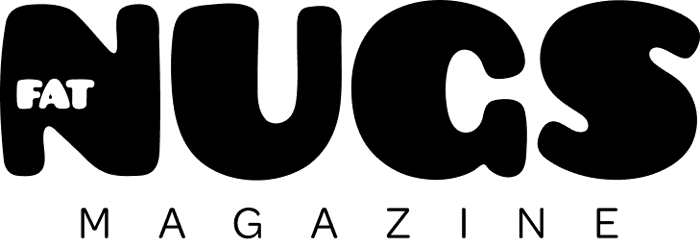Cannabis never betrayed me. The cannabis industry did.
The first time cannabis broke me, there was no smoke curling in the air, no joint between my fingers. Just the sharp hum of fluorescent lights above me, and the bitter smell of burnt coffee clinging to a conference room where ambition soured into something uglier. I opened my mouth and felt my words dissolve before they even reached the table, vanishing into the stale air.
It wasn’t because I didn’t know my shit. It wasn’t because I hadn’t earned the right to speak. It was because I had the audacity to believe the plant mattered more than their bottom line.
When the Plant Holds You and the Industry Breaks You
The plant has only ever held me. The cannabis industry, on the other hand, demanded I mother it while it failed to protect its own daughters.
For nearly a decade, I poured myself into it. I built markets from scratch, launched brands into the spotlight, trained sales teams until my voice was hoarse, smiled through trade shows, and emptied myself out until there was nothing left. And then I walked away. Twice.
The first time was after filing an EEOC complaint and being branded a troublemaker. The second was when I was running two departments for the price of one, offering every ounce of myself to a system that only knew how to take.
But I didn’t just walk out of jobs. I walked out of illusions. I walked out of the belief that this industry would ever hold space for women in cannabis the same way the plant has always held space for us.
Even the numbers tell the story. According to MJBizDaily, in 2023, women owned just 16% of cannabis businesses, even while they made up 39% of executives. On paper, it looked like progress. In practice, it was a ceiling disguised as a spotlight. Visibility without equity. Presence without power.
Survival Disguised as Choice
The first time I left, it was survival disguised as choice.
I had witnessed racial discrimination against a colleague. I had documented sexual harassment against a member of my team. I followed the handbook step by step, word for word. I went to HR. They nodded. They promised. They filed paperwork. Then they did nothing.
The handbook was never written to protect us. It was written to protect them.
Punishment doesn’t always arrive with a bang. Sometimes it drifts in quietly, like smoke creeping under the door. One day, the projects I had built were reassigned. Another day, meetings I once led carried on without me. My name, once spoken with respect, became contraband. They whispered in hallways like a warning: Troublemaker. Disruptive. Too much.
I still remember the knot in my stomach walking past those whispers. The way my badge suddenly felt heavier around my neck, as if it too was warning me that my time was up.
My lawyer called it constructive dismissal. I called it the slow erasure of everything I had given. Filing the EEOC complaint was not revenge. It was survival. It was me saying:
“I see what you are doing, and you will not pretend it never happened.”
The second time I left, the warning signs were different, but the ache was the same. I was running sales and marketing, two departments pressed onto one back, one paycheck stretched across the body of a woman who was already breaking.
I told myself it was temporary. That if I proved myself again and again, they would notice. They would adjust. They would finally value what I brought to the table. Instead, I became the only leader micromanaged by the CEO, and the only woman in that room. Every decision I made was second-guessed, dissected, and twisted into busy work that carried no meaning but weighed heavily on my shoulders.
I did not stay silent. I spoke about my concerns, and I came armed with solutions. I mapped out systems to lighten the load, to make the work sustainable, to bring balance back into the chaos. I asked for fairness. What I received was dismissal. My voice was brushed off, my effort smoothed over, my presence reduced to a waiting game where patience was demanded but respect was denied.
The COO, my boss, even looked me straight in the eye and said the words I will never forget:
“You need to submit. The CEO is not going to change.”
That was the moment I knew. No matter how much I gave, this company and this industry would only take.
So, I resigned. They made it immediate, even though I offered to stay and help transition the role. I walked out with my head high, but my heart was pounding like I had escaped a fire.
Weeks later, the job postings appeared. Two roles to cover the work I had been doing alone. Two salaries to replace the work of one burned-out woman. That was my confirmation. The problem had never been me.
According to Gallup, burnout is not personal failure. It’s the cost of systems that keep extracting until women in the cannabis industry decide to walk away. In 2023, 33 percent of employed women said they felt burned out “very often or always,” compared with 25 percent of men.
They called it quitting. I knew it was survival.

The Weight They Never Name
I could handle the hustle. I could handle the pressure. What I could not handle was watching women in the cannabis industry give everything to a plant built on healing, only to see the industry rebuild the same systems it promised to disrupt.
I endured gaslighting and power plays from men who mistook my confidence for a threat. But some of the sharpest cruelty came from women who saw me as competition instead of kin. They decided I did not belong, and they made sure I felt it in every sideways glance, in every meeting where my ideas were dismissed when I spoke them, and celebrated when someone else repeated them.
The boardroom turned into a cafeteria with higher stakes. The cliques were the same, but the currency was no longer about popularity. It was about careers and livelihoods.
The work that drains you most is the work they never name. The late-night texts from staff in tears. The whispered pep talks in bathrooms after someone had been humiliated. The smoothing of egos, the careful explanations of why words matter, why equity matters, why kindness is not weakness.
None of that shows up on a balance sheet. None of it earns a bonus. Yet without it, teams collapse.
I carried that labor because the plant had taught me care. I believed the industry wanted that care too. Instead, I learned that emotional labor was expected, invisible, and placed on the same shoulders again and again: women in the cannabis industry, people of color, or anyone with the sensitivity to see what others ignored.
The hypocrisy burns. How can a plant once used to cage people of color become a product sold through systems that still wound?
I realized then that the industry was not broken. It was functioning exactly as it was designed. And that design did not include protecting its daughters.
The Silence They Demanded Became My Voice: The Chronicles of Mary Jane
When the industry broke me, I needed something to hold me together. I reached for words.
What began as memory and rage became The Chronicles of Mary Jane on Substack. A place where I could speak truth without being silenced. A place to stitch myself back together after being torn apart.
It is becoming a memoir. A love letter to the plant. A record of how the system around me tried to spit me out.
Writing saved me. It gave me back my voice. It is also my path forward.
Leaving was not weakness. It was the bravest act of self-respect I have ever made. Two exits in one year taught me that my worth is not tied to a paycheck or a title. My worth lives in my voice, in my integrity, and in the fire they tried to extinguish but couldn’t.
I still love the plant. She has never been the problem. She gave me healing, laughter, and truth.
What broke me was the machine built around her. A machine that chews up women, minorities, and anyone who dares to shine.
But here is what I know now. Leaving was not the end. It was the beginning of something larger.
Planting Seeds for a Different Future
The Mary Jane Fund is my answer. Right now, it is a seed, but one day it will grow into a nonprofit or a micro-grant program rooted in equity. Its purpose is simple and unshakable: to return power to the people this industry has discarded, overlooked, or tried to silence. Women in the cannabis industry. People of color. Anyone who has been silenced or marginalized. Every person who has carried the weight while others walked away with the checks.
The Mary Jane Fund is not charity. It is restoration. It is a call back to balance, a promise that the hands that built this industry will also hold its future.
No one should still be in a cage for cannabis. No one should be shut out of its wealth because of who they are or because they refuse to shrink. The plant has always been a healer, a teacher, a rebel against control. And so must we.
I know I am not the only one who has suffered under this machine. Others will read these words and feel the familiar sting of being underestimated, underpaid, or pushed out. To them I say: enough. We will not be erased.
Our voices will not whisper. They will thunder. The future will not be written by those who silenced us. It will be written by the women in the cannabis industry who refused to disappear.
Pain into power. Scars into seeds. That is how we grow a future worthy of the plant we love.
✌️❤️? Peace, Love & Mary Jane


